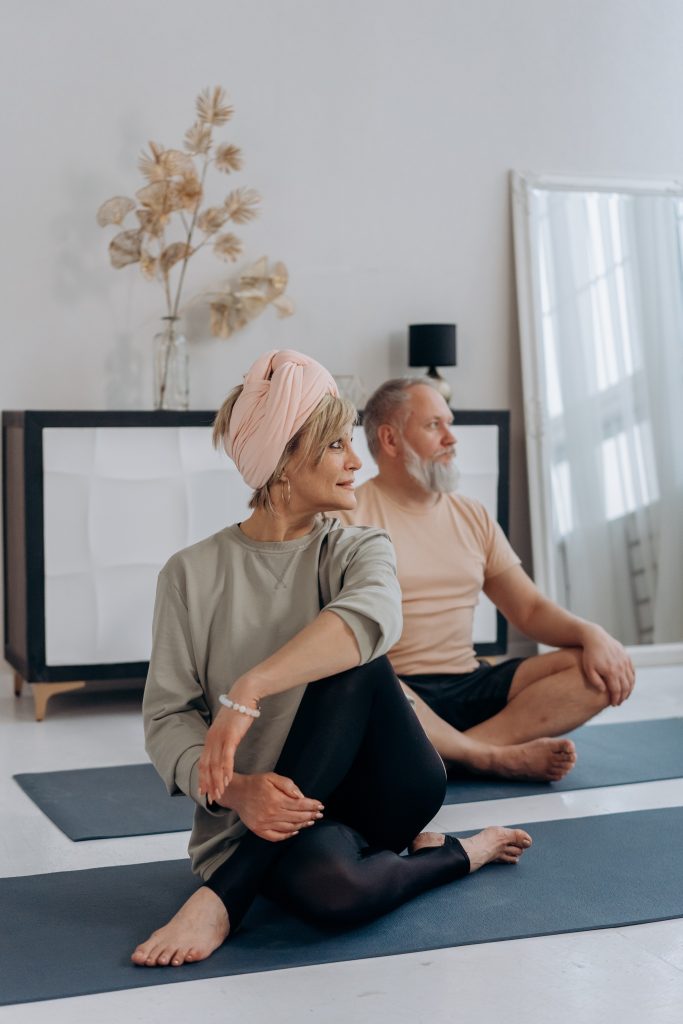
Healthy Aging and Longevity: Adding Life to Years
Everyone has the same goal: to have a long and healthy life. But what if we could not only live for a longer period of time but also have improved health and general well-being as we become older? This is the promise that comes with healthy aging, which encompasses both the art and the science of aging in a positive manner. As we age, our bodies require different nutrients to maintain optimal health. Focus on eating a balanced diet that includes plenty of fruits, vegetables, whole grains, lean proteins, and healthy fats. Some healthy foods for 45 and above include fatty fish, nuts, and seeds, which are rich in omega-3 fatty acids to support brain health.
Memory decline is a common concern as we age. But by incorporating certain nutrients into your diet, you can support healthy aging and memory and potentially slow cognitive decline. Foods rich in antioxidants, such as berries, dark leafy greens, and dark chocolate, can help protect against oxidative stress and inflammation that contribute to age-related cognitive decline.
Dementia is a progressive brain disorder that affects many older adults. While there is no cure for dementia, certain lifestyle choices can help reduce the risk of developing the condition. These include regular exercise, a healthy diet rich in fruits and vegetables, social engagement, and cognitive stimulation.

What is Healthy Aging ?
Healthy ageing is the process of optimising physical, mental, and social wellbeing as we grow older. It’s about making choices that promote health and prevent disease, disability, and dependence. Healthy ageing involves a holistic approach that takes into account the complex interplay between our genes, environment, lifestyle, and social factors.
Healthy Aging vs. Unhealthy Aging
While some people age well and maintain their health and independence, others experience a decline in physical and mental-function that can impair their quality of life. Here are some factors that can influence healthy aging:
Genetics: Our genes can influence our susceptibility to age-related diseases and conditions, but they are not the only factor.
Lifestyle: Our choices regarding diet, exercise, sleep, stress, and other factors can significantly impact our health and ageing.
Environment: Our exposure to toxins, pollution, and other environmental factors can also influence our health and ageing.
Social factors: Our social connections, support networks, and sense of purpose can contribute to healthy ageing.
Tips for Healthy Ageing That Go Beyond the Basics
Some of the healthy habits and longevity tips that might help in graceful ageing include the following:
Incorporate strength training: While cardio exercise is important for overall health, strength training is especially important as we age. It can help maintain muscle mass and bone density and improve balance and mobility. Try incorporating resistance bands or light weights into your routine.
Practice good posture: Poor posture can lead to back pain, joint problems, and reduced mobility. Focus on sitting and standing up straight, and engage your core muscles to support your spine.
Try new things: Engaging in new and challenging activities can help keep your brain active and stimulated. Consider trying a new sport, learning a new language, or taking up a new hobby.
Protect your skin: Sun damage can accelerate ageing and increase the risk of skin cancer. Wear protective clothing and sunscreen, and avoid excessive tanning.
Stay hydrated: Dehydration can cause a range of health problems, from constipation to kidney damage. Aim for at least 8 glasses of clean water a day, and consider adding more water-rich foods like fruits and vegetables to your diet.
Practice mindfulness: Mindfulness practices like meditation and deep breathing can help reduce stress and improve mental health. Consider incorporating a daily mindfulness practice into your routine.
Stay up to date on technology: Technology can provide new opportunities for social connection, cognitive stimulation, and health monitoring. Stay up to date on new technologies that can benefit your health and well-being.
Improve your sleep health: Getting enough good quality sleep is crucial for healthy ageing as it can help repair and rejuvenate the body. On the other hand, sleep deprivation can lead to premature ageing, affecting the skin, brain, and immune system.
https://www.atsjournals.org/doi/10.1164/rccm.201504-0767ST
Getting a restful sleep can contribute to improved cognitive function, reduced confusion, better coordination, increased engagement, and higher energy levels during the day for those with dementia.
Sleep is an essential aspect of maintaining good health, particularly as we age, especially in our later years.
Take Away
Keep in mind that maintaining good aging is a process that continues throughout one’s life, and that it is never too late to start making beneficial adjustments to one’s lifestyle. You may add more years to your life and live a life that is healthier and more fulfilling as you become older by adopting these recommendations into your daily routine.
If you’re looking for a great way to stay up dated on the latest tips and tricks for your health and pet well-being.
